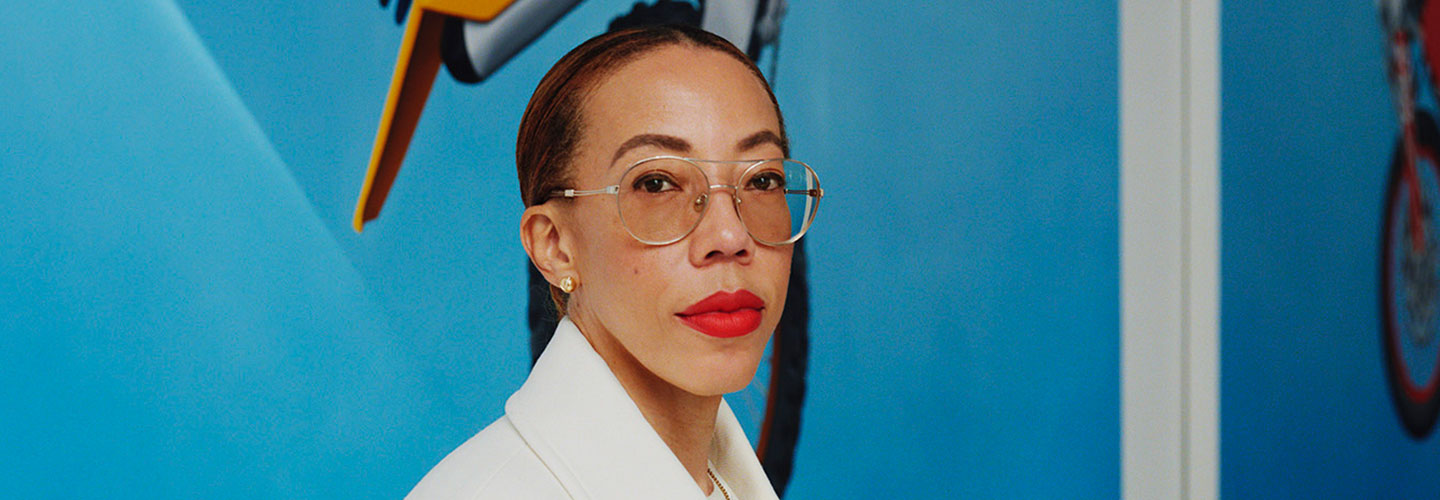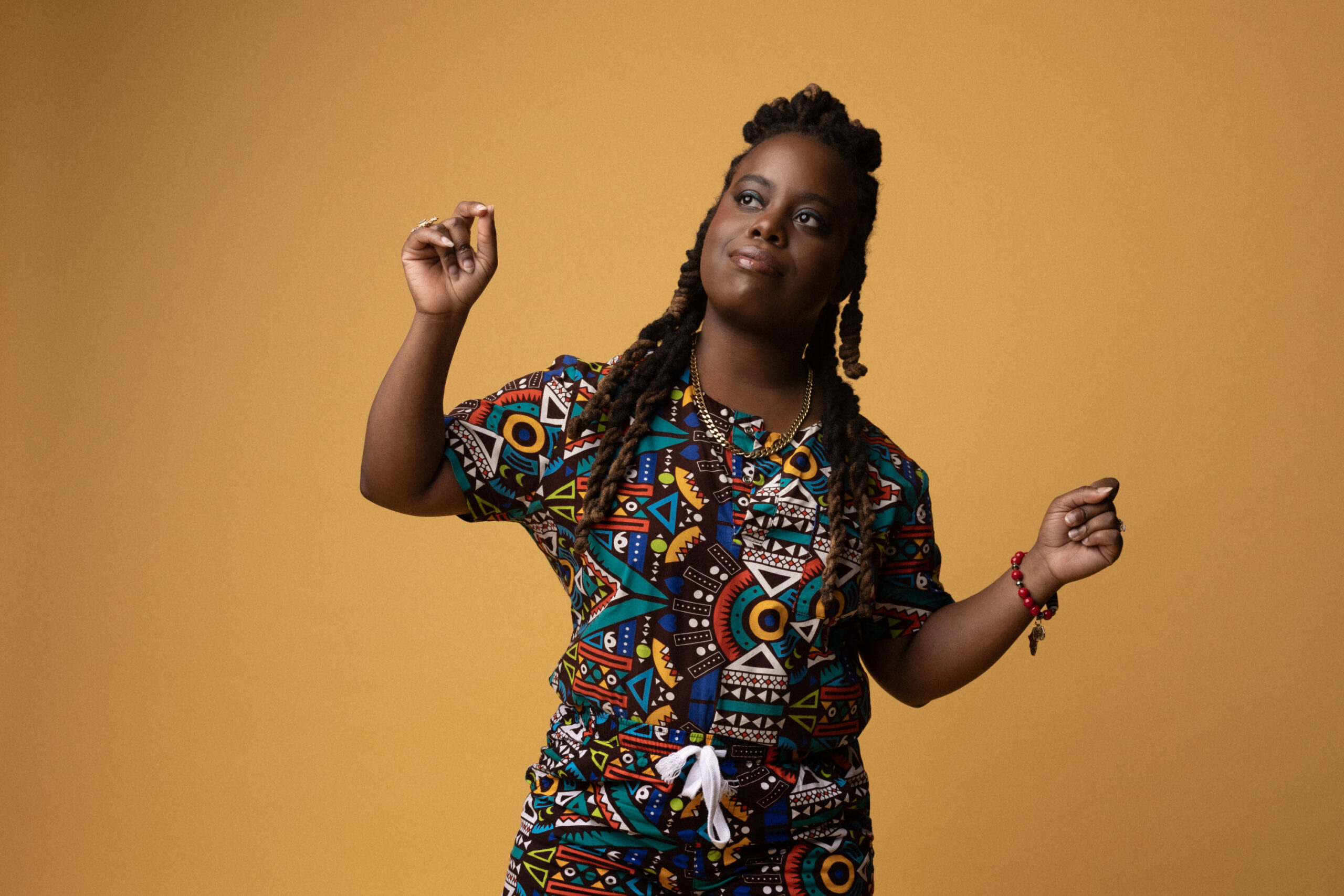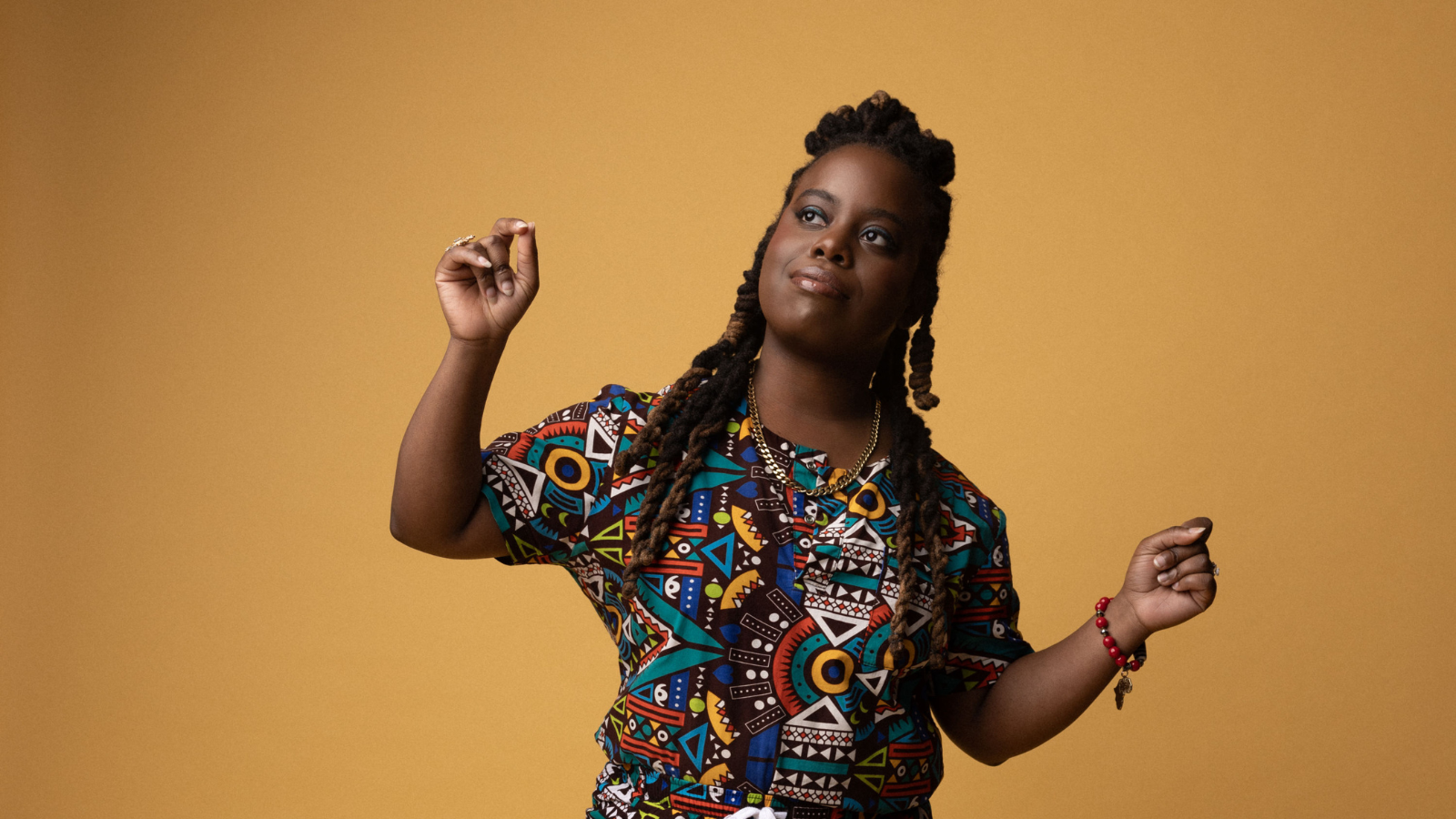About this Performance
Yasmin Williams, one of the most exciting composers and musicians working today, brings her iconic fingerstyle guitar playing to the Glade for one night only.
Creative Credits
Amy Sherald
Curator
The renowned painter hosts her favorite musicians on the island for performances June 20-21 in The Glade at 10:00 pm
Born in Columbus, Georgia, and now based in the New York City area, Amy Sherald documents contemporary African American experience in the United States through arresting, intimate portraits. Sherald engages with the history of photography and portraiture, inviting viewers to participate in a more complex debate about accepted notions of race and representation, and to situate Black life in American art. Sherald received her MFA in painting from Maryland Institute College of Art and her BA in painting from Clark-Atlanta University. Sherald was the first woman and first African American to ever receive the grand prize in the Outwin Boochever Portrait Competition from the National Portrait Gallery in Washington, D.C. In 2018, Sherald was selected by First Lady Michelle Obama to paint her official portrait for the National Portrait Gallery in Washington, D.C. Her first major museum solo exhibition and mid-career survey, “Amy Sherald: American Sublime” is currently on view at the Whitney Museum of American Art, and travels to the National Portrait Gallery in Washington, D.C. in the fall.
Yasmin Williams
Performer
Yasmin Williams is a genre-defying acoustic guitarist and composer from Woodbridge, Virginia. Raised in a music-loving family, she grew up harmonizing on car rides and listening to a wide range of artists. While studying music theory and composition at NYU, she began developing her signature fingerstyle technique, playing guitar across her lap and incorporating unconventional approaches.
Williams has released two albums – Unwind (2018) and Urban Driftwood (2021) – showcasing her evolving sound and inventive methods. She often combines guitar with instruments like kalimba (played simultaneously), kora, harp guitar, doubleneck guitar, banjo, and various percussive tools to create textured, rhythmic soundscapes.
Though her instrumentation is often associated with folk and old-time traditions, Williams resists that label. “I don’t subscribe to the folk idiom,” she says. “It promotes conformity in some aspects, and to me that’s the opposite of what folk music is about.” Instead, she embraces experimentation and creative freedom, forging a style all her own. Her new album Acadia is out now on Nonesuch Records.


